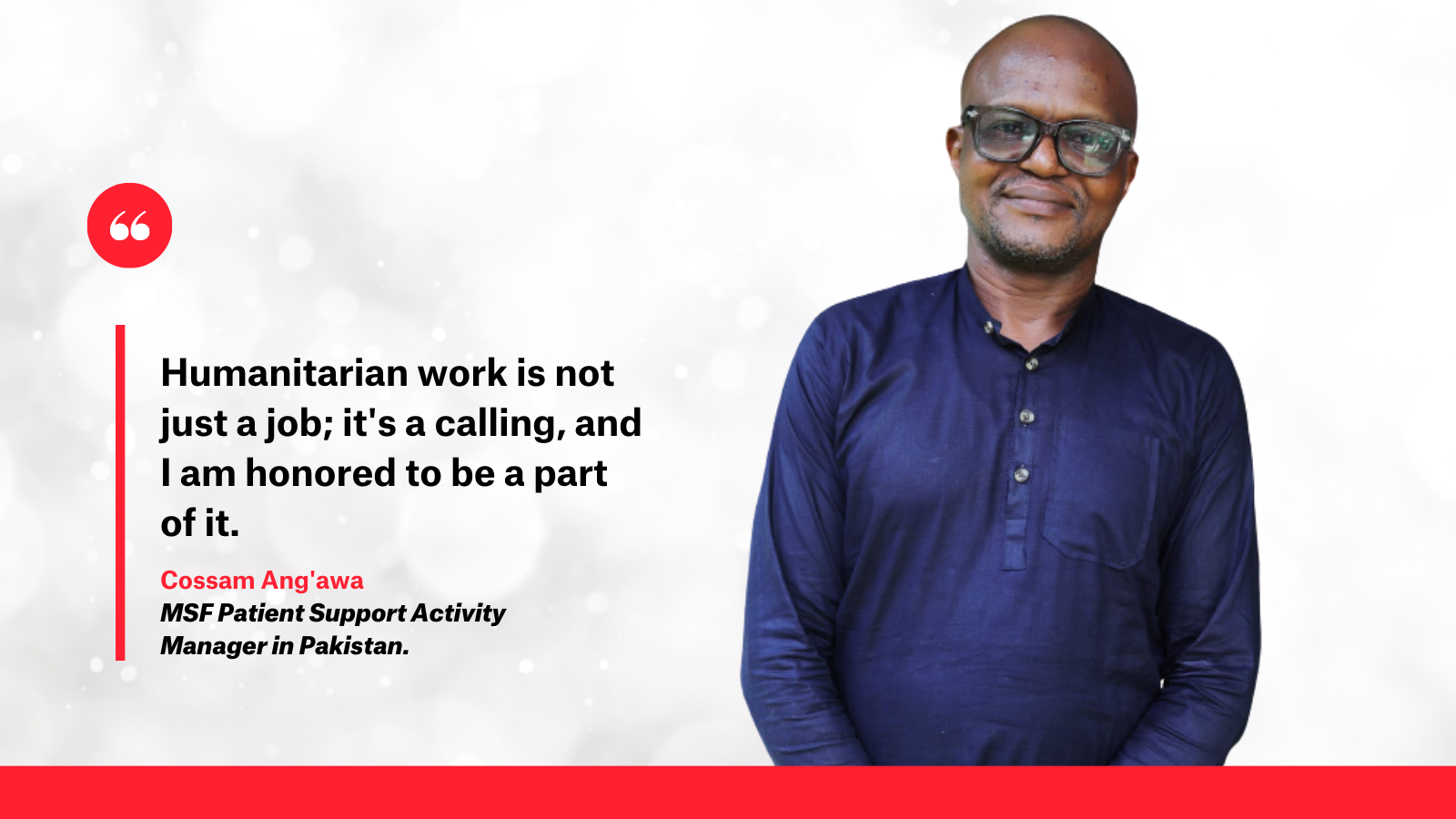"I have always had an urge to assist people in need. The desire to serve humanity, especially the vulnerable, influenced my decision to undertake humanitarian work. It's a calling I couldn't ignore.
Several factors inspired me to join MSF, but the clearest was the organisation´s principles - independence, neutrality and impartiality - which resonated with my own.
My initial exposure to the organization was in Homabay, where MSF provides free treatment to people living with HIV/AIDS, despite the high cost of these medications. Our work involved identifying those infected through testing, linking them to care, and ensuring their retention in care through follow-ups. I witnessed firsthand the organization's dedication to delivering quality care, centered around the patient.
Following my time in Homabay, I embarked on a challenging assignment in Old Fangak, South Sudan. This project also focused on HIV-TB, and my role was to introduce counselling concepts to the program. This assignment proved to be the most difficult one I had encountered, given the challenging living conditions and security concerns in the region.
After Old Fangak, I moved on to the Multi Drug Resistant (MDR) TB Project in Somaliland. This project was based in Hargeisa but involved constant movement to regional centers. We provided care to patients who had developed resistance to first-line TB drugs. The project had an inpatient ward in Hargeisa, where patients were admitted during the first two months of treatment. Serving as the Patients Education and Counseling Manager for 15 months, I witnessed the impact of MSF's work in addressing the unique challenges presented by MDR-TB.
Currently, I'm in Pakistan, working on another MDR TB program in the Gujranwala project. While there are no inpatient wards, patients come for monthly follow-ups. As the Patient Support Activity Manager, I am responsible for overseeing various aspects of patient care and support.
A typical day begins at 8am as we make our way to the Programmatic Management Drug-Resistant (PMDR) TB site. I attend health education sessions and monitor their progress. I also have meetings with psychologists to identify patients in need of social support. Other routine meetings follow, allowing us to coordinate various activities. My workday typically concludes at 3:00 PM.
In our line of work, challenges are ever-present, but we strive to find innovative approaches to overcome them. One such challenge we faced was reaching patients who lived far away and were outside our designated visitation areas. In Pakistan, we are restricted from conducting home visits in some areas. However, contact tracing is a crucial activity in TB management, involving the collection of sputum from contacts for screening. To overcome this challenge, we implemented a system where we label sputum cups and give them to patients, we then conduct telephone calls to guide them on producing sputum samples. This initiative has allowed us to reach the contacts of our patients, which would have been difficult under normal circumstances.
Reflecting on my assignments, one of the most memorable parts of my journey was surviving in Old Fangak, South Sudan. The difficulties I encountered regarding the living conditions tested my resilience and adaptability. Overcoming those challenges left a lasting impression on me, along with the impact we were able to make to people, which made it all worthwhile.
Would I go on another assignment? YES! Despite the challenges and hardships that come with this line of work, the impact we make and the lives we touch make it worthwhile. The satisfaction of knowing that we are making a difference in the lives of the vulnerable is unparalleled. The opportunity to continue serving humanity and making a tangible difference is something I am committed to pursuing. Humanitarian work is not just a job; it's a calling, and I am honored to be a part of it."
